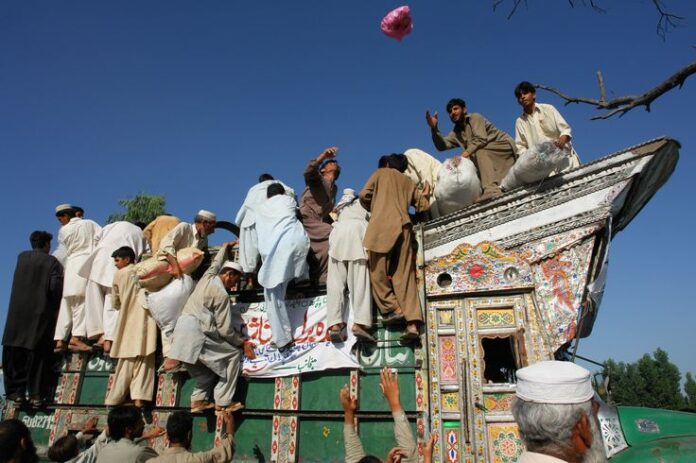In a sweeping nationwide operation, the repatriation of illegal Afghan nationals from Pakistan has reached a notable milestone, with 235,821 individuals returning to Kabul. This initiative, propelled by the apex committee of the National Action Plan (NAP) under the guidance of Caretaker Prime Minister Anwaarul Haq Kakar, has set a deadline for all foreign nationals living unlawfully in Pakistan to leave voluntarily or face deportation, emphasizing a firm stance on immigration control.
During the latest 24-hour period, official data reports that 472 families, traveling in 236 vehicles, have made their way back to Afghanistan. The government of Pakistan is actively facilitating the repatriation process at the Torkham and Chaman borders, ensuring a systematic return of individuals who overstayed their welcome.
The caretaker Interior Minister, Sarfraz Ahmed Bugti, has been vocal in rejecting any form of mistreatment or ‘manhandling’ of illegal immigrants during the repatriation process. He highlighted Prime Minister Kakar’s explicit instructions to maintain a humane approach, emphasizing that the government aims for a smooth and organized repatriation without compromising the dignity of the individuals involved.
In response to concerns raised during a Senate session, Sarfraz Bugti assured the House that strict measures are in place to prevent mismanagement at the borders. He expressed a commitment to welcoming suggestions from political leadership to enhance the process further. Importantly, Bugti clarified that Afghan refugees with legal documents have not faced any interference, reaffirming the government’s dedication to upholding human rights and ensuring a fair and lawful repatriation.
As the repatriation deadline expired on October 31, the significant number of returns underscores the comprehensive approach taken by the Pakistani government in addressing immigration challenges. This initiative is not merely about enforcement but reflects a broader commitment to manage population movements, maintain national security, and uphold the rule of law.
The ongoing repatriation efforts shed light on the complexities surrounding migration policies and the delicate balance between enforcing legal requirements and treating individuals with dignity and respect. The story unfolds against the backdrop of regional dynamics, emphasizing the need for collaborative solutions to address the root causes of migration and create conditions conducive to voluntary return.


